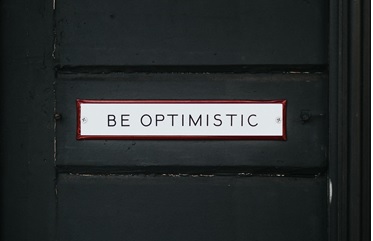If you’re not hopeful and optimistic, then you just give up. You have to take a long hard look and just believe that if you’re consistent, you will succeed. ~Congressman John Lewis

As the nation remembered long-time congressman, John Lewis last week, I noted a recurring theme. Persistent. Optimism. Congressman Lewis endured numerous challenges and setbacks, even physical harm, but that did not deter his persistent optimism.
More Noted Quotes by Congressman Lewis
Be hopeful. Be optimistic. Never lose that sense of hope.
I think all Americans should be hopeful, and try to be optimistic.
Never give up. Never give in. Never become hostile…Hate is too big a burden to bear.
Over the years, I’ve worked with people who don’t value optimism, and certainly don’t see it as a virtue. They tend to see optimism as either glossing over the facts or outright ignoring reality. Yes, it is possible to completely ignore reality. However, we can learn a lot from John Lewis’ healthy optimism. He did not ignore reality. He leaned into reality with the mindset of optimism.
The Facts About Optimism
If you need some facts, here are few. Daniel Goleman reports that “Research shows that positive outlook (aka: optimism) tends to lead to very positive emotions. Countless studies show that positive emotions, in turn, lead to better performance. The list of specific benefits from positive emotions include better health, more enjoyment in life, greater ability to overcome setbacks, and even enhanced creativity.”
Kimberly Hershenson, LMSW, sums it up this way. “Positive thinking [optimism] doesn’t mean that you ignore life’s stressors. You just approach hardship in a more productive way.”
Now what?
There are many things we can do to be more optimistic. I’m going to focus on just two that I believe are particularly relevant in our current circumstances. I am borrowing these from Daniella Whyte, Contributor to HuffPost.com.
Take Responsibility. If you think optimism means you sweep problems under the rug, then consider this. Blaming other people, or any third party (i.e., COVID) for what you alone can change will only make you sad and depressed. People who take responsibility for the choices that they make, by default, live happier lives. Taking responsibility can make you more optimistic.
Listen. When we truly listen to other people, we are saying by our behavior that we are confident and secure within ourselves to be open to what other people have to say. We don’t know everything. When we are willing to listen to what other people know, we attract more of the good stuff that we desire in life. Listening lends itself to optimism.
Thank you, John Lewis for your portrayal of healthy optimism—an attribute of leading with bold grace.